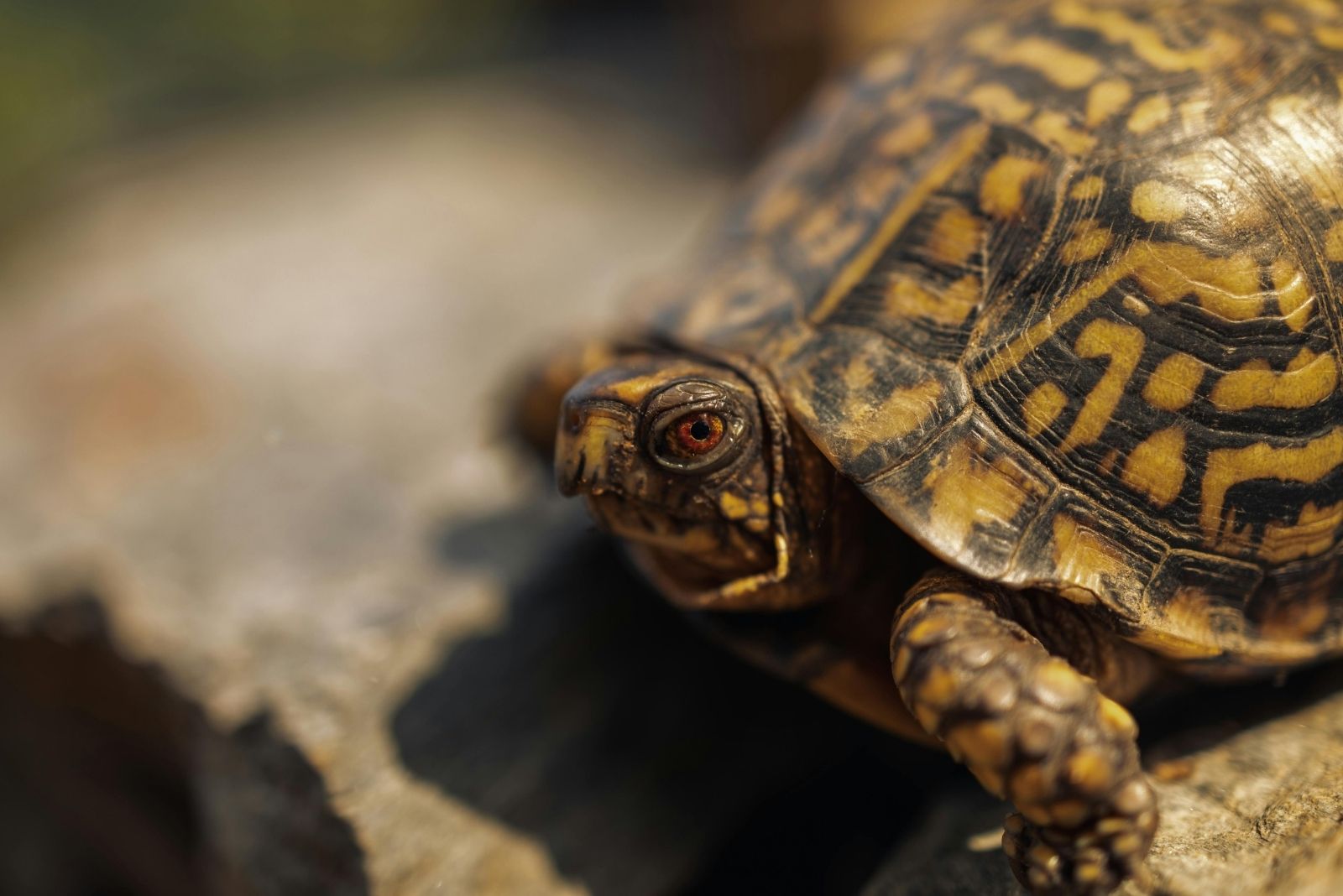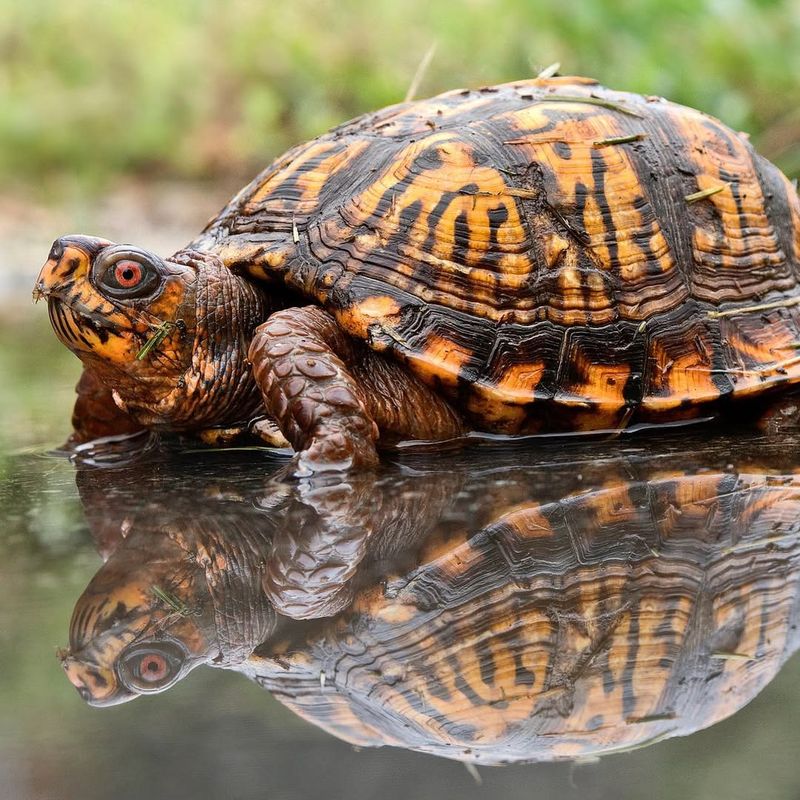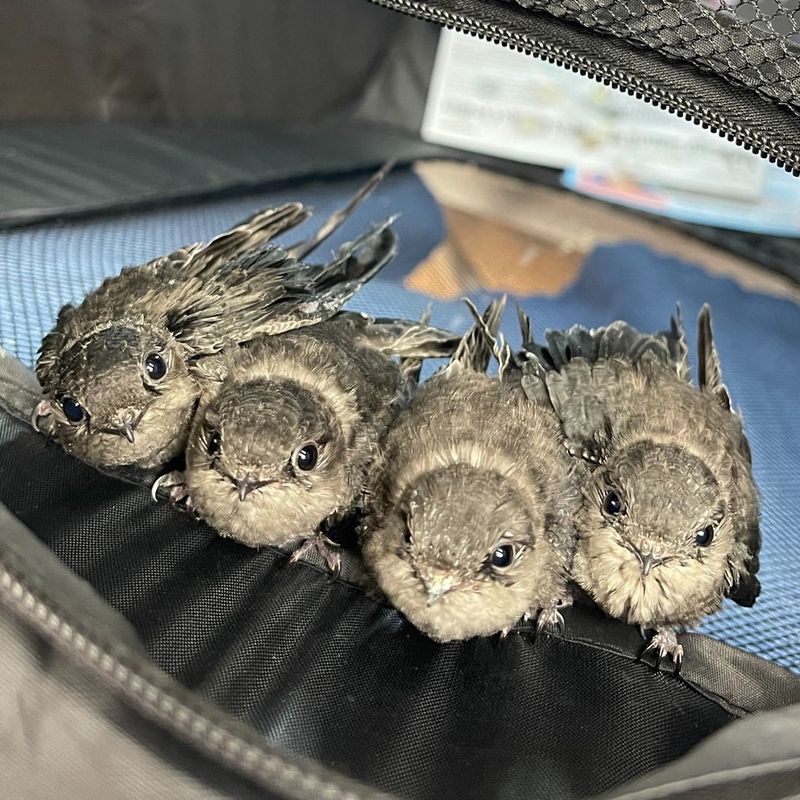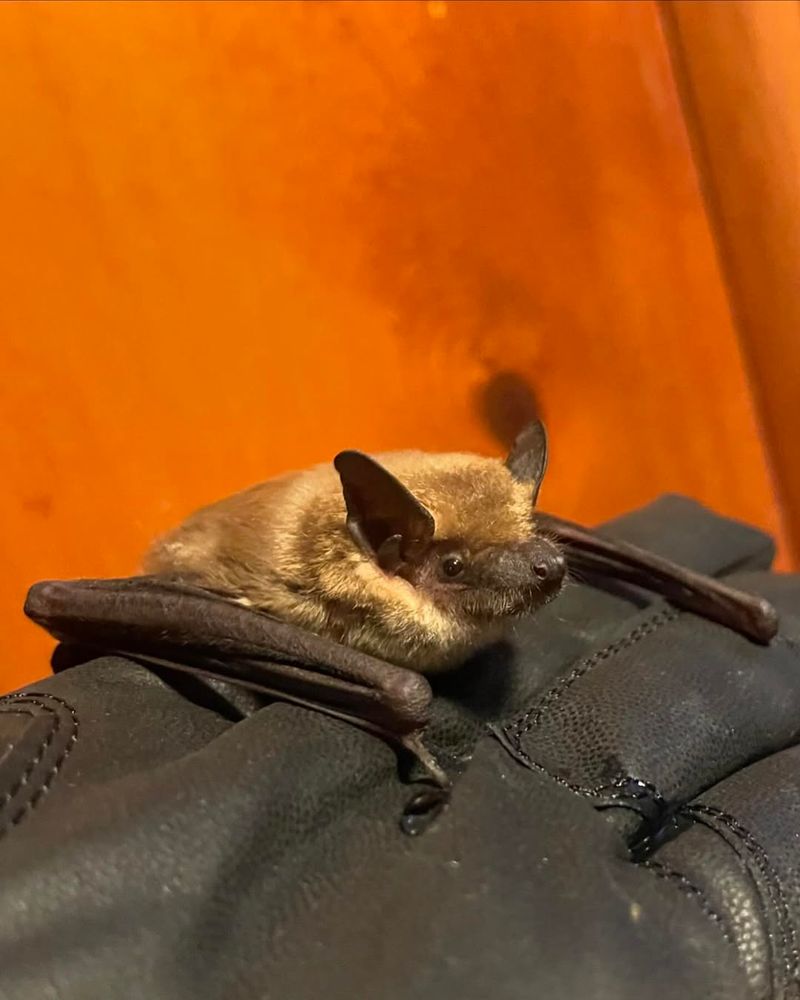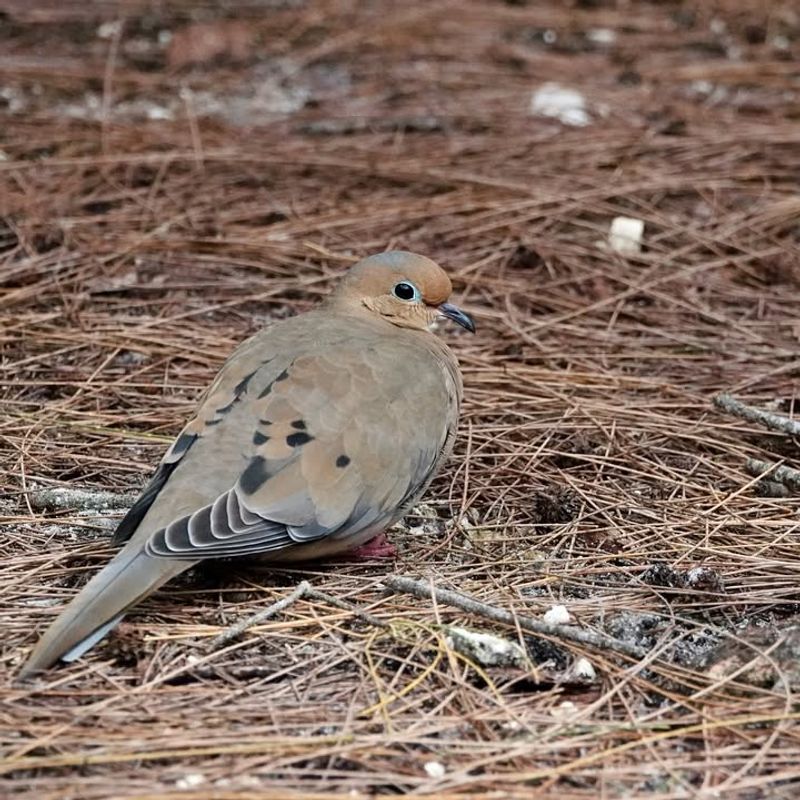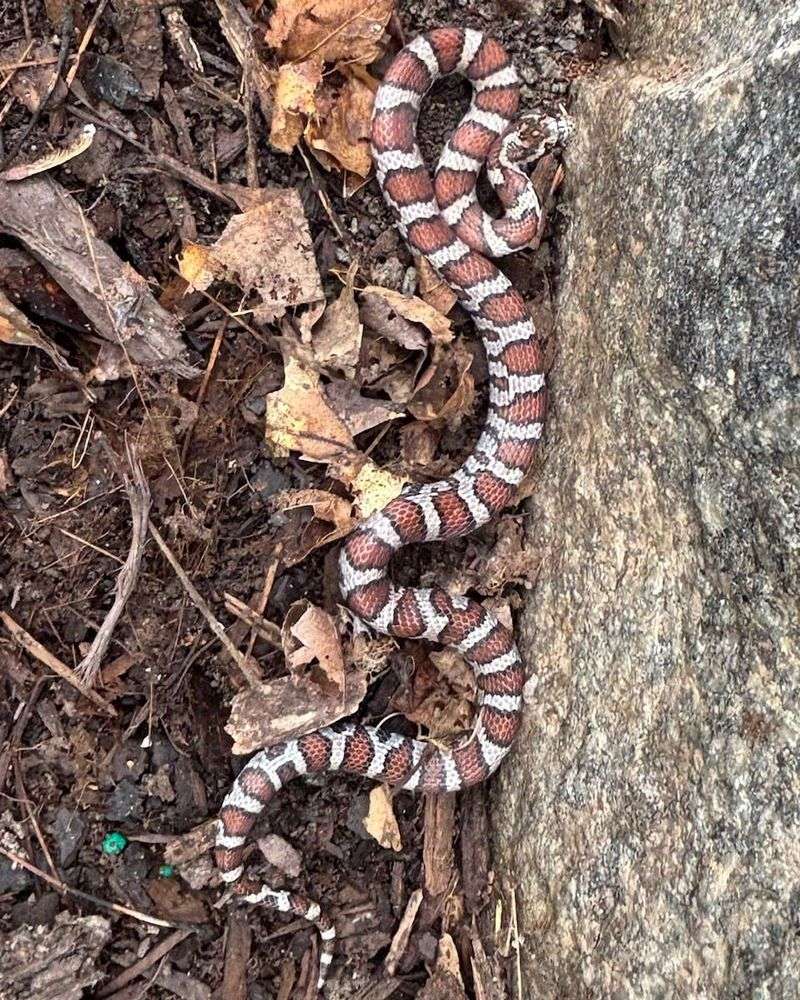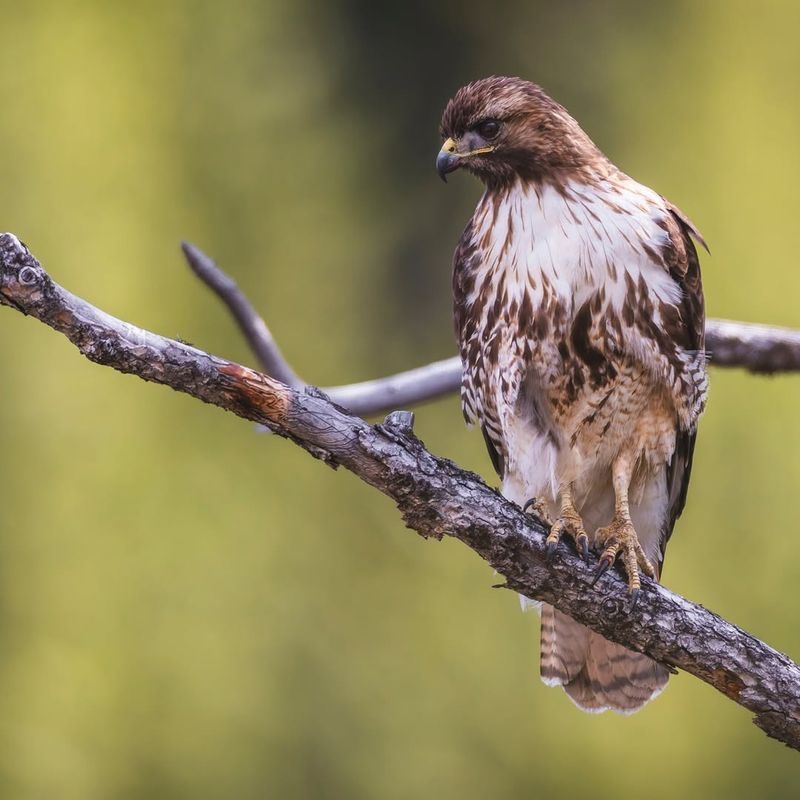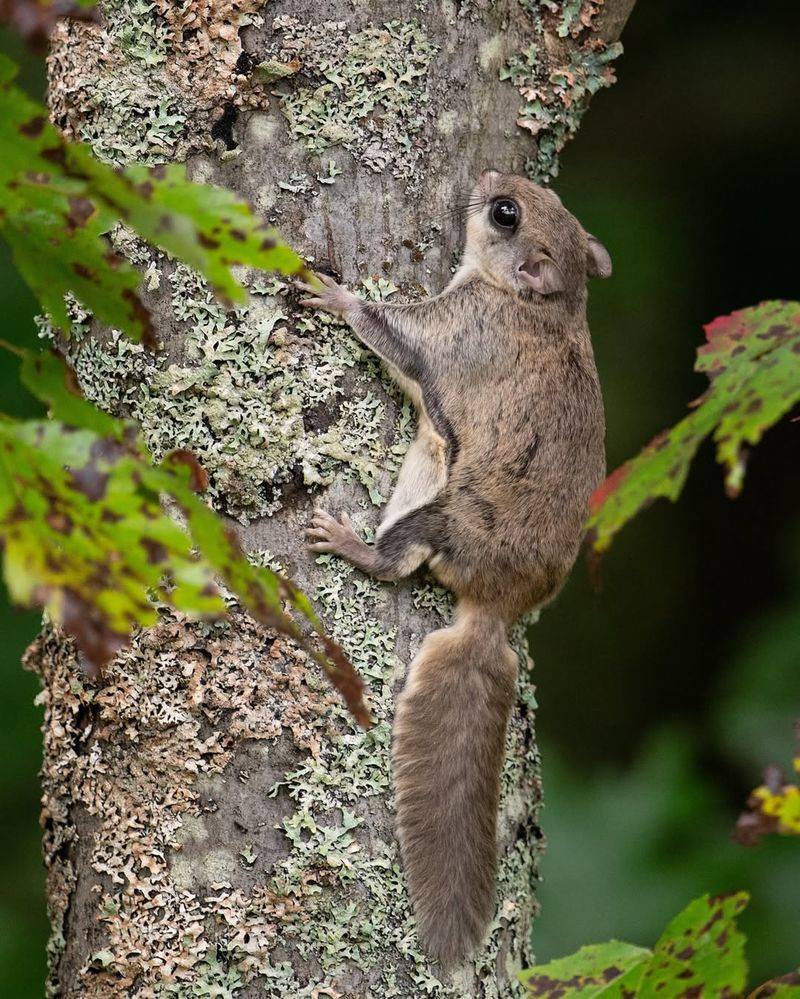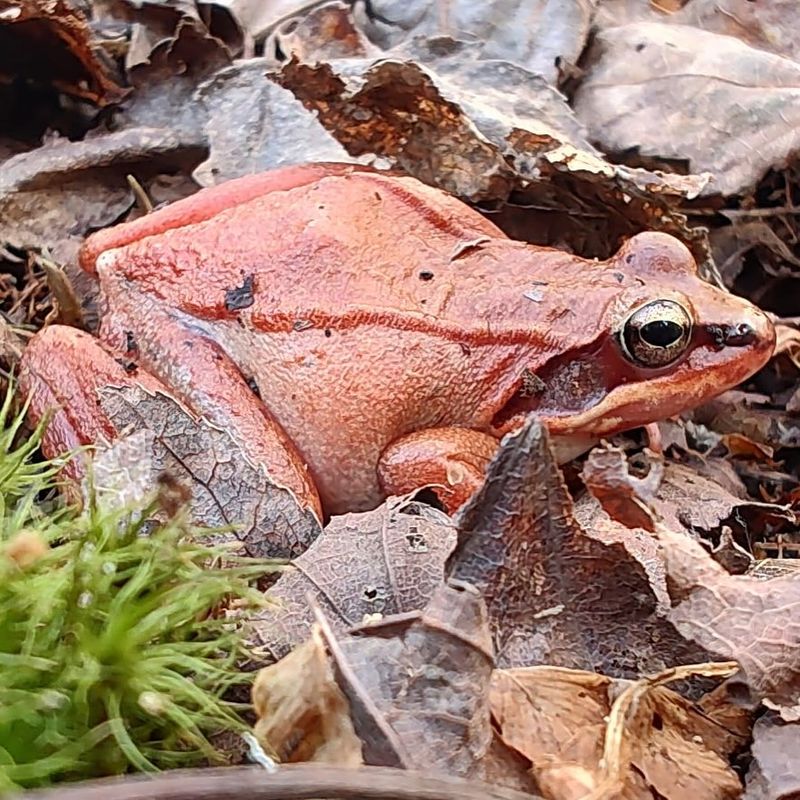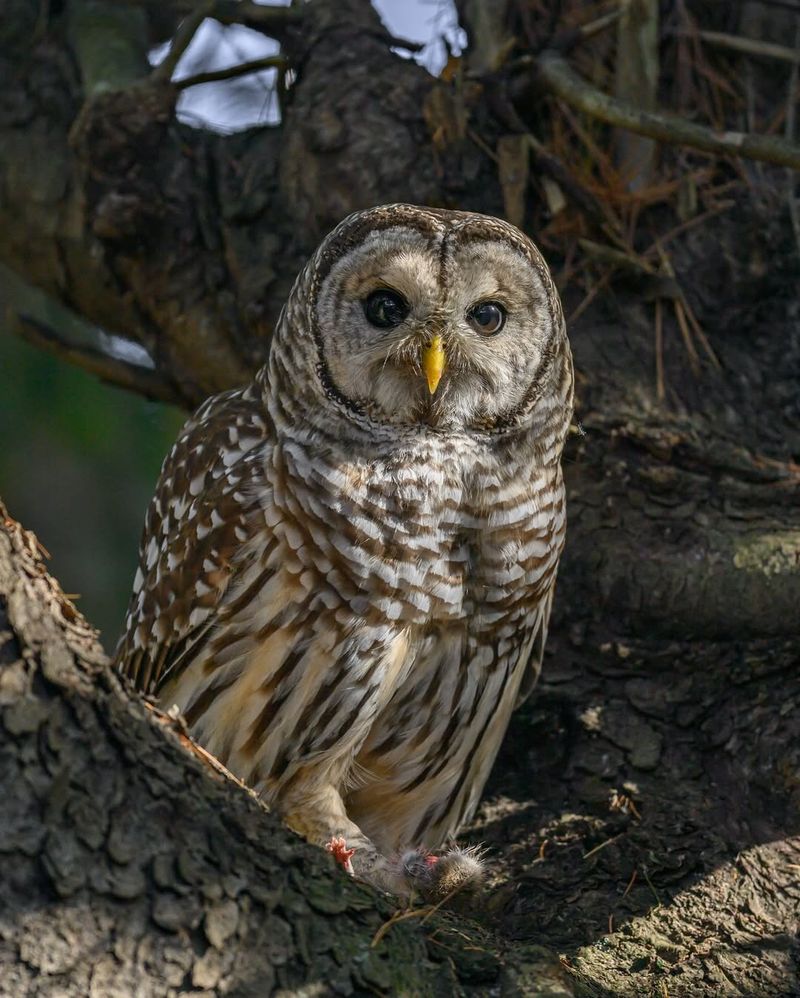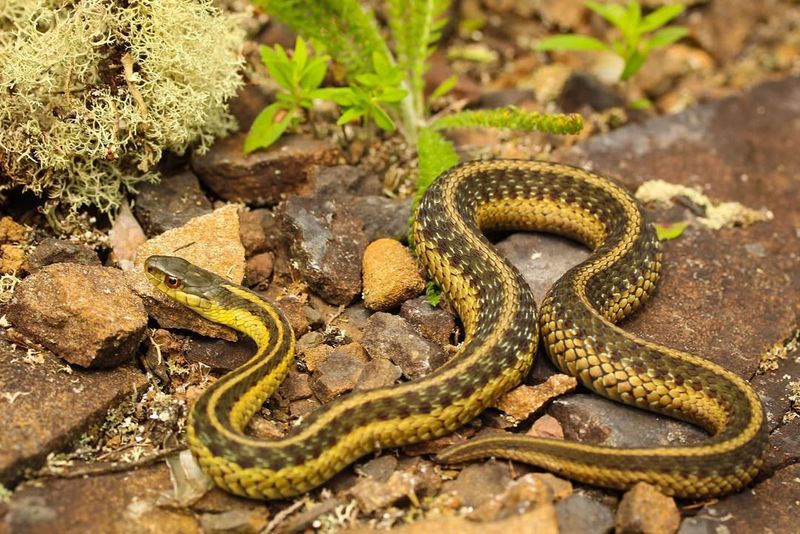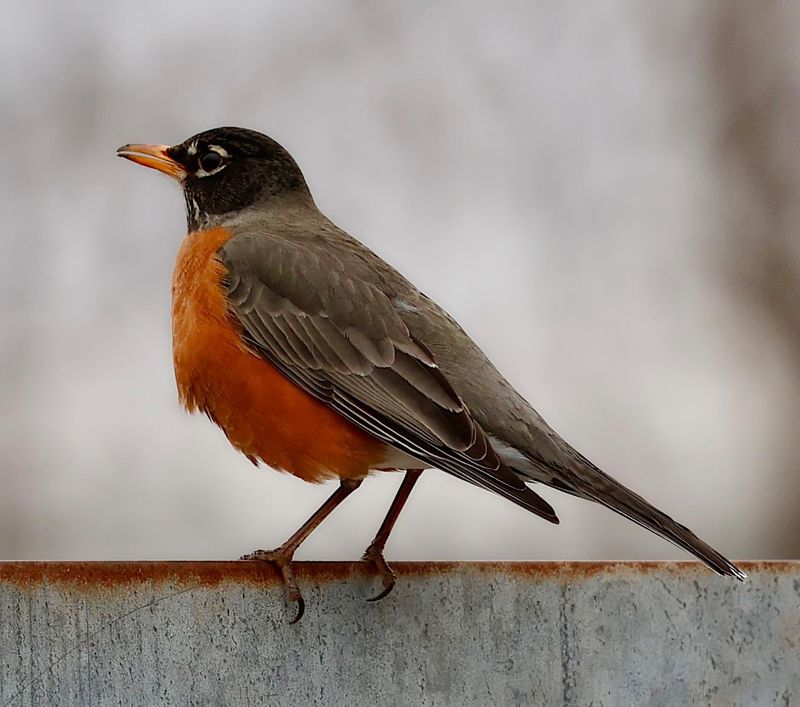Living in Massachusetts means sharing your space with some unexpected neighbors. While most people know they can’t harm eagles or bears, there are actually quite a few creatures protected by state and federal law that might surprise you.
Whether they’ve nested in your attic, built a home in your backyard, or simply decided your porch is the perfect hangout spot, removing certain animals without proper permits can land you in serious legal trouble.
1. Eastern Box Turtles
Finding one of these slow-moving reptiles crossing your lawn might seem like a perfect opportunity to relocate it somewhere safer. Massachusetts law strictly prohibits removing or keeping box turtles, even if you think you’re helping.
These turtles have incredibly small home ranges and removing them from familiar territory can be fatal. They navigate using mental maps developed over decades, and relocation causes severe stress that often leads to death.
If you spot one, simply let it pass through naturally or gently move it in the direction it was already heading.
2. Chimney Swifts
That chattering sound echoing down your chimney each spring isn’t a problem to solve—it’s a protected migratory bird making its seasonal home. Chimney swifts are federally protected under the Migratory Bird Treaty Act, making it illegal to disturb their nests or young.
These acrobatic birds actually provide excellent pest control, consuming thousands of flying insects daily. Massachusetts residents must wait until the birds migrate south in fall before cleaning chimneys or installing caps.
The noisy period typically lasts only six to eight weeks during nesting season.
3. Little Brown Bats
Discovering bats in your attic can be unsettling, but these tiny mammals are strictly protected in Massachusetts due to devastating population declines from white-nose syndrome. Removing them yourself is illegal and can result in hefty fines.
These nocturnal hunters devour up to 1,000 mosquitoes per hour, making them incredibly valuable neighbors despite the inconvenience. Professional wildlife experts must perform exclusion work only during specific times of year when young aren’t present.
Maternity season runs from May through August, when removal is completely prohibited statewide.
4. Painted Turtles
Spotting these colorful turtles sunbathing near your backyard pond might tempt you to catch one as a pet for your kids. Massachusetts regulations make it illegal to capture, possess, or sell native painted turtles without proper permits.
Even well-meaning rescue attempts can violate state wildlife laws. These turtles play crucial roles in aquatic ecosystems by controlling algae, consuming dead fish, and serving as prey for larger animals.
Taking them disrupts local populations that have already faced habitat loss. Enjoy watching them from a distance instead of interfering with their natural behavior.
5. Mourning Doves
When these gentle birds build flimsy nests on your porch light or window ledge, your first instinct might be to remove the structure before eggs appear. Once nesting begins, however, federal law protects mourning doves and their nests from disturbance.
Massachusetts residents must wait until babies fledge naturally, which typically takes just two weeks from hatching. The birds often reuse successful nest sites year after year, so prevention before nesting season starts is your best strategy.
Installing deterrents in early spring can redirect them to trees instead of your doorway.
6. Eastern Milk Snakes
The striking red, black, and white bands on these snakes often cause panic, as people mistake them for venomous copperheads. Massachusetts law protects milk snakes because they’re harmless and beneficial, controlling rodent populations around homes and barns.
Killing or removing them is prohibited under state regulations. These shy reptiles rarely bite and actually help keep your property free from mice, voles, and other pests that damage gardens.
Learning to identify helpful snakes prevents unnecessary fear and illegal removal. They’re completely non-venomous and prefer avoiding human contact whenever possible.
7. Red-Tailed Hawks
These majestic raptors sometimes build massive stick nests in backyard trees, causing concern for pet owners worried about small animals. Federal law strictly prohibits disturbing hawks, their nests, or their young, regardless of location.
Massachusetts residents cannot remove nests even if they pose perceived threats to pets. Hawks actually provide excellent rodent control and rarely target domestic animals.
Keeping small pets supervised during hawk activity hours—typically dawn and dusk—offers simple protection. The birds usually move on after raising their young, and their presence indicates a healthy local ecosystem with adequate prey.
8. Northern Flying Squirrels
Strange scratching sounds in your walls at night might lead you to discover these adorable, big-eyed gliders have moved into your home. Massachusetts classifies northern flying squirrels as protected wildlife, making DIY removal illegal.
Unlike their common gray squirrel cousins, flying squirrels face habitat challenges and receive special legal protection. Their nocturnal habits mean most homeowners never even see them despite sharing living space.
Licensed wildlife professionals must handle exclusion humanely, ensuring no animals are trapped inside. These squirrels don’t actually fly but glide using special membranes stretched between their legs.
9. Wood Frogs
Each spring, these remarkable amphibians emerge from hibernation and sometimes gather in large numbers around backyard pools or puddles. Massachusetts protects wood frogs along with most native amphibian species from collection or harm.
Their presence actually indicates excellent environmental quality in your neighborhood. Wood frogs possess an amazing ability to freeze solid during winter and thaw out alive in spring—a biological marvel worth protecting.
Rather than removing them, consider yourself lucky to witness their brief but noisy breeding season. They’ll disappear back into woodlands within a few weeks after laying eggs.
10. Barred Owls
The haunting “who cooks for you” call of these owls might keep you awake at night, but disturbing them is strictly forbidden under federal law. Barred owls increasingly adapt to suburban Massachusetts neighborhoods, roosting in mature trees near homes.
Their nighttime hunting helps control rat, mouse, and squirrel populations naturally. Some residents find their vocalizations unsettling, but the birds pose no danger to humans or pets.
Removing owl roosts or nests violates the Migratory Bird Treaty Act and carries serious penalties. Learning to appreciate their presence beats dealing with the rodent problems they prevent.
11. Eastern Garter Snakes
Finding these common snakes in your garden, basement, or under your deck might startle you, but they’re protected by Massachusetts wildlife regulations. Garter snakes are completely harmless and provide tremendous benefits by eating slugs, insects, and small rodents.
Many homeowners unnecessarily kill these helpful reptiles out of fear. They’re non-venomous, rarely bite, and actively improve your garden’s health by controlling pests that damage plants.
Removing habitat features like brush piles and rock walls eliminates their shelter, encouraging them to relocate naturally. Coexisting with these snakes means fewer garden pests and a healthier yard ecosystem overall.
12. American Robins
When robins choose your window ledge, mailbox, or porch for their mud nests, the mess and noise can be frustrating. These familiar birds are federally protected, making nest removal illegal once eggs or chicks are present.
Massachusetts residents must tolerate the temporary inconvenience, which typically lasts only three to four weeks from egg-laying to fledging. Robins are beneficial garden helpers, consuming vast quantities of lawn grubs, caterpillars, and other insects.
The droppings and debris are temporary nuisances compared to the legal consequences of disturbing an active nest. Prevention before nesting season remains your only legal option.

